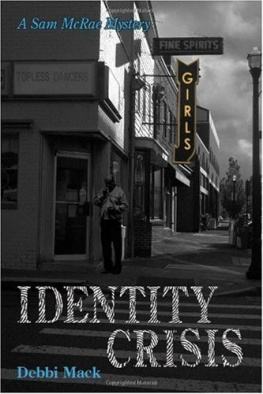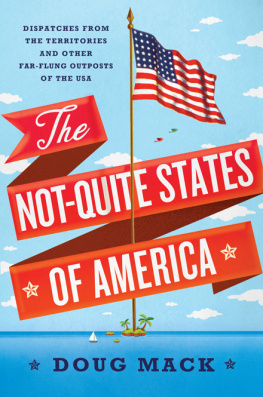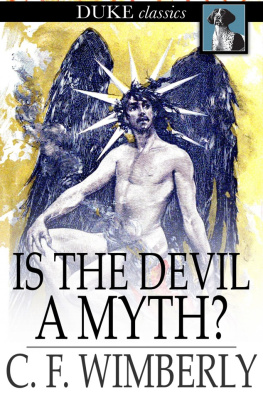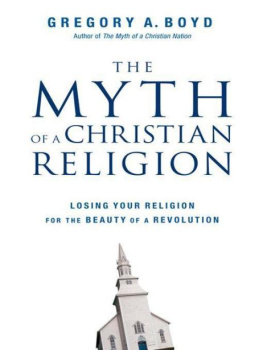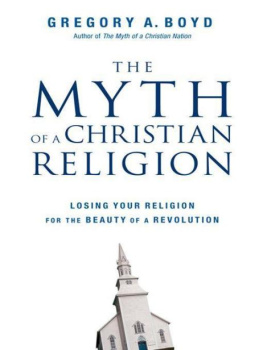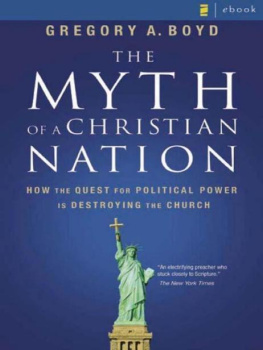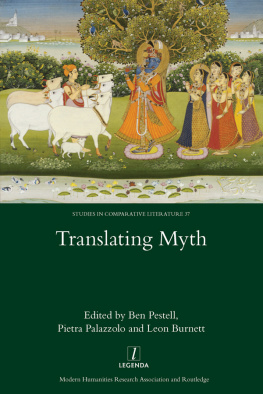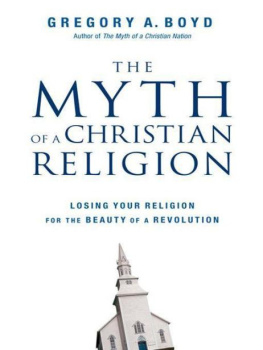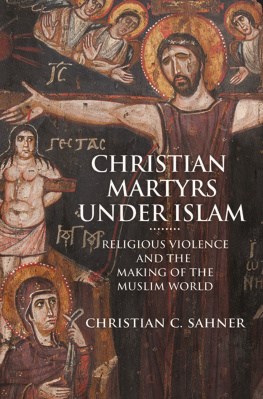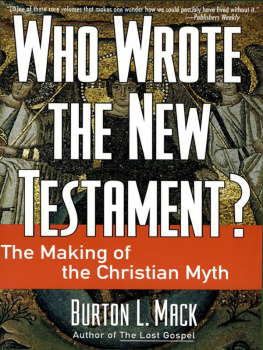Mack - Who wrote the New Testament? : the making of the Christian myth
Here you can read online Mack - Who wrote the New Testament? : the making of the Christian myth full text of the book (entire story) in english for free. Download pdf and epub, get meaning, cover and reviews about this ebook. City: San Francisco, Calif, year: 1995, publisher: HarperCollins;HarperSan Francisco, genre: Religion. Description of the work, (preface) as well as reviews are available. Best literature library LitArk.com created for fans of good reading and offers a wide selection of genres:
Romance novel
Science fiction
Adventure
Detective
Science
History
Home and family
Prose
Art
Politics
Computer
Non-fiction
Religion
Business
Children
Humor
Choose a favorite category and find really read worthwhile books. Enjoy immersion in the world of imagination, feel the emotions of the characters or learn something new for yourself, make an fascinating discovery.

Who wrote the New Testament? : the making of the Christian myth: summary, description and annotation
We offer to read an annotation, description, summary or preface (depends on what the author of the book "Who wrote the New Testament? : the making of the Christian myth" wrote himself). If you haven't found the necessary information about the book — write in the comments, we will try to find it.
Abstract: The making of the Christian myth
Who wrote the New Testament? : the making of the Christian myth — read online for free the complete book (whole text) full work
Below is the text of the book, divided by pages. System saving the place of the last page read, allows you to conveniently read the book "Who wrote the New Testament? : the making of the Christian myth" online for free, without having to search again every time where you left off. Put a bookmark, and you can go to the page where you finished reading at any time.
Font size:
Interval:
Bookmark:
The Making of the Christian Myth

For Curt
Whose ancient texts are the Mission Mountains,
and whose other culture is the Nez Perce
The Mystique of Sacred Scripture
: Jesus and the Christ
Clashing Cultures
Teachings from the Jesus Movements
Fragments from the Christ Cult
Christ and the Hinge of History
Paul and His Gospel
Pauls Letters to Greeks and Romans
Gospels of Jesus the Christ
Visions of the Cosmic Lord
Letters from the Apostles
History and the Christian Myth
Inventing Apostolic Traditions
Claiming Israels Epic
Creating the Christian Bible
The Fascination of the Bible
Early Christian Literature
The Contents of Q
The Pronouncement Stories in Mark

THE MYSTIQUE OF
SACRED SCRIPTURE
Fascination with sacred scriptures seldom surfaces for observation or remark. Their mystique is subtle, something that most persons in a culture would hardly recognize even if mentioned. I have been pondering that mystique, asking why the Bible has such a curious hold on our minds and imaginations. I have not been thinking about the obviously embarrassing public displays of foolish obsessions with the Bible in our time, listening for the hoofbeats of Johns four horsemen of the apocalypse, for instance, or citing Paul to prove that gays are sinners in the eyes of God. Madness of that sort can pop up in times of social and cultural crisis no matter what the issue or the mythic authorities might be. I am thinking instead about all of the seemingly innocent ways in which the Bible is taken for granted as a special book, and about all of the ways in which it works its magic in our culture without ever being acknowledged, consulted, or read.
The range of procedures for consulting the Bible is astounding. Students tell me that their grandmothers used to seek a word for the day by letting their Bibles flop open to a verse for the day. Ministers, priests, rabbis, preachers, and teachers by the thousands pore over these texts in quest of some lesson or message fit for their classes or congregations. Groups are now forming outside the formal boundaries of institutional religion to study the Bible in the hope of discovering some fundamental truth felt to have been lost in our recent past. Think of the intellectual labor invested in the academic study of the Bible, the production of scholarly studies and guides for interpreting the Bible, and the huge flow of literature that constantly pours forth from church houses and commercial publishers of books on the Bible. One might well wonder at all this activity swirling around a single book.
This constant consultation of the Bible is partially explained by the important role assigned to the Bible in our religious institutions. Readings from the Bible are essential to liturgies, lessons from the Bible are basic for teachings and doctrines, and references to the Bible are felt to be necessary in the construction of theologies by those charged with the intellectual life of religious traditions. The remarkable thing about this kind of appeal to the Bible, however, is that it does not seem to matter whether all of the theologies and teachings so derived agree. And it does not matter that, for a particular teaching or view, the biblical basis may consist of only a small set of sentences taken out of context and pressed into a dogma. This is true even at the highest levels of serious theological discourse. A study by David Kelsey (1975) has shown that, as one moves from one theological system to another among the Christian traditions in America, the selection of biblical texts said to be basic for the system also changes. It is as if everyone knows that the voices recorded in the Bible are many and diverse but that everyone continues to treat the Bible as if it spoke with a single voice. And even though the Bible is treated as a book with a single message, everyone understands that it must be studied as if the message were hidden or unclear. It is treated as if it were a collection of divine oracles that have to be decoded in order to arrive at the truth they contain. Is it not odd that one needs to consult the Bible, study the Bible, comb through the Bible, or pierce the surface of its enigmatic language in order to discern the hidden truth that gives it the authority it has for our religions? Is it not odd that we have not taken note of this curious preoccupation with the relentless study of the Bible in our society and that we do not ask what it is about the Bible and our religions that lies behind such fascination?
The Bible also works its magic in our culture outside the bounds of religious institutions, although the ways in which it influences our collective sense of values and patterns of thinking as Americans are not readily recognized or discussed openly among us. Most of us do know, however, that biblical imagery and themes pervade the history of Western literature, theater, art, and architecture. We also know that the Bible was always involved in the conquest of other lands. During the age of discovery, for instance, Columbus studied the Bible in order to plan his voyages, and he read the parable of the feast in Luke 14:1624 as a commission to circle the globe and compel the heathen to convert as Luke 14:23 enjoins (J. Z. Smith 1986). Should not such examples of the Bibles influence in the history of our expansive civilizations bring a little frown of embarrassment to our faces?
We also have a vague notion of the importance attached to the Bible in early American history. It was the one book everyone had in hand, and it shaped the way we viewed the land, treated Native Americans, and constructed our institutions, including schools, universities, and the curricula of higher education. Many Americans have been quite intentional about treating the Bible as a charter for our nation. Thomas Jefferson, for example, thought it important to match the level of enlightenment we had reached in American democratic institutions with a Bible purged of its myths and miracles. Thus the Jefferson Bible contained only the pristine teachings of Jesus. As for the unpurged Bible, segregation in the South was long justified by quoting the curse on Hams posterity in Genesis 9:2027 on the one hand, and arguing for the right to demand obedience from a slave by citing Paul on the other. When the lure of developing the vacant lands to the West in the late nineteenth century reached its peak, volumes of utopian poetry were written by leading American authors, such as Walt Whitman, rife with biblical themes about our manifest destiny as the people of God, called to create a paradise in the midst of an erstwhile wilderness. And the clichs we have used to announce our presence to the world have all been taken from biblical imagery: righteous nation, city set on a hill, and light to the nations. What do you suppose we would have said about ourselves if we had not had the Bible?
In our own time, it is the frequent mention of the Judeo-Christian tradition that reveals how naively and automatically the Bible plays its role in public discourse. The term Judeo-Christian means that we stand in the biblical tradition, and the biblical tradition is regarded as the source for the values that make our society respectable and legitimate. No one finds it strange to hear senators quoting from the Bible or objects when presidents-elect place their hands upon it while taking the oath of office. It is as if we take our place in history by unreflected reference to the Bible. A vague recollection of the biblical story seems to be in everyones mind, a story that begins at the creation of the world with Adam and Eve in the garden, that courses through the Bible and then through the history of Western civilization to flow into the fulfillment of its promise in America with a culmination in the future of consequence for all the peoples of the world. Those who have studied American popular culture tell us that the Bible has profoundly influenced the way we tell our stories, look for meanings, quest for transformations, imagine our futures, and hope for apocalyptic solutions to our problems. If the Bible is that important to our culture, is it not strange that we have not questioned the reasons why?
Font size:
Interval:
Bookmark:
Similar books «Who wrote the New Testament? : the making of the Christian myth»
Look at similar books to Who wrote the New Testament? : the making of the Christian myth. We have selected literature similar in name and meaning in the hope of providing readers with more options to find new, interesting, not yet read works.
Discussion, reviews of the book Who wrote the New Testament? : the making of the Christian myth and just readers' own opinions. Leave your comments, write what you think about the work, its meaning or the main characters. Specify what exactly you liked and what you didn't like, and why you think so.

